The Fun of Play: How Kids Makeup Sparks Creativity
Play is an essential component of childhood, serving as a vehicle for imagination, experimentation, and social interaction. One such playful trend that has emerged in recent years is the use of kids’ makeup. This article delves into the numerous ways that makeup can foster creativity among children, the psychological benefits tied to pretend play, and how parents can encourage this form of expression.
The Power of Imagination in Play
Imaginative play is more than just a form of entertainment; it is a developmental milestone that significantly contributes to a child’s cognitive, social, and emotional development. According to scholars, children naturally gravitate toward activities that allow them to express themselves, whether through art, music, or imaginative role-play. One avenue for expression that has gained traction is the use of makeup.
Role of Makeup in Imaginative Play
Kids’ makeup serves as a powerful tool for imaginative exploration. When children paint their faces, they step into various roles—be it a princess, superhero, or even their favorite cartoon character. This transition fosters creativity as children construct narratives around their chosen identities.
Example of Role-Playing: A girl might dress as a fairy and use glitter makeup to become ethereal and magical, revamping her entire persona. She can then create a story about living in a magical land where she uses her powers to help others, thereby engaging her imagination.
Developmental Benefits: A Psychological Perspective
Research in developmental psychology suggests that imaginative play, including the use of makeup, promotes essential skills. According to Dr. Marilyn Segal, a child development expert, such play can develop empathy, problem-solving skills, and emotional resilience (Segal, 2018).
-
Empathy: Pretending to be someone else allows children to explore different perspectives, fostering a sense of empathy.
-
Problem-Solving: Creating stories and characters requires children to think critically and navigate challenges within their narratives.
-
Emotional Resilience: Engaging in imaginative play helps children process emotions, contributing to their emotional intelligence.
Creativity and Self-Expression
Kids’ makeup is not just about aesthetics; it’s a form of self-expression that lets children explore their individuality. As they experiment with colors, patterns, and styles, they inherently learn about choice and consequence, leading to a better understanding of personal identity.
Artistic Exploration
Makeup allows children to engage in artistic activities that can enhance their fine motor skills. Applying makeup requires precision, hand-eye coordination, and creativity, akin to painting or drawing.
-
Experimenting with Colors: Children play with various colors and textures, learning about color theory and blending techniques.
-
Creating Characters: The process of transforming oneself into a character—a monster, a cat, or a butterfly—requires creativity in design and execution.
These activities not only enhance artistic skills but also foster an understanding of aesthetics and design principles.
Cultural and Social Influences
The rise of social media platforms has further amplified the visibility of creative play through makeup. Children are exposed to diverse makeup styles through influencers and online tutorials, encouraging them to incorporate these styles into their imaginative play.
Encouraging Social Interaction
Engaging in makeup play often invites collaboration. Children can work together to create looks, share their techniques, and co-create narratives. This collaborative environment promotes social skills, such as communication, compromise, and teamwork.
Setting the Stage for Future Creativity
Studies have revealed that children who engage in creative forms of play, including makeup application, are more likely to exhibit creativity later in life. They develop problem-solving skills and risk-taking abilities that can translate to various fields, whether in the arts, sciences, or business.
Parental Perspectives: Balancing Fun and Safety
While the fun of kids’ makeup can provide numerous benefits, parental involvement is essential. Parents should consider safety and educational value when introducing makeup to their children.
Safety Guidelines for Kids’ Makeup
-
Skin Safety: Use products that are hypoallergenic, non-toxic, and dermatologically tested to prevent allergic reactions.
-
Supervision: Young children should always be supervised when using makeup to prevent accidental ingestion or misuse.
-
Age-Appropriate Products: Select products designed specifically for children, which typically contain safer ingredients and are easier to remove.
Encouraging Creative Play
Parents can nurture creativity by:
-
Providing Open-Ended Materials: Supply a variety of makeup and art materials. Allow children to explore and create freely without strict guidelines.
-
Establishing a Play Area: Designate a safe space for makeup play, complete with mirrors and ample lighting. This encourages children to engage fully in the experience.
-
Promoting Imaginative Stories: Encourage children to develop narratives around their makeup play. This could involve role-playing or acting out scenes connected to their chosen character.
Embracing Diversity: Makeup and Identity
Makeup play can be a profound medium for children to explore issues of identity, including race, gender, and cultural representation. As children practice makeup techniques, they can adopt various personas that may represent different aspects of their identity.
Cultural Representation
Makeup allows children to explore their cultural heritage, as many traditional practices incorporate makeup or body art. Engaging with these practices can foster understanding and appreciation for diversity.
- Adopting Cultural Aesthetics: Children can learn about different cultural lifestyles through makeup, broadening their understanding of beauty norms and representation.
Gender Identity and Exploration
Makeup has traditionally been viewed as a feminine domain, but modern societal trends illustrate that makeup, like any form of creativity, is not limited by gender.
-
Breaking Stereotypes: Encouraging boys to engage in makeup play allows them to break free from societal norms that restrict self-expression.
-
Self-Exploration: Children, regardless of gender, can experiment to discover facets of their identities, which is especially vital in a world increasingly recognizing the spectrum of gender.
Conclusion: The Multifaceted Joy of Makeup Play
The world of kids’ makeup is a joyful playground that sparks creativity, improves social skills, and develops emotional intelligence. By encouraging imaginative play through makeup, parents can help their children explore their identities, develop empathy, and enhance their problem-solving skills.
Moreover, children get the opportunity to express themselves artistically and socially, preparing them for a versatile and adaptable future. While participating in this unique form of play, children can create not just whimsical looks but also lifelong memories and cherished skills that resonate far beyond the boundaries of childhood.
As the saying goes, “Play is the highest form of research.” Through makeup play, the journey of discovery is laden with colorful experiences that enrich a child’s life, ultimately nurturing creativity and expression for years to come.
Footnotes
-
Segal, M. (2018). The role of imaginative play in childhood development. Journal of Child Psychology and Psychiatry, 59(4), 6–10.
-
McLoughlin, M., & Reeder, C. (2020). Exploring the connections between creative play and emotional regulation. Early Childhood Research Quarterly, 54(2), 123–135.
-
Thompson, J., & Harris, S. (2021). The social dimensions of play: Bridging gaps through creative expression. Childhood Development Perspectives, 15(1), 21-26.
















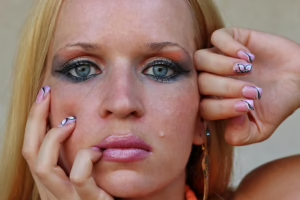
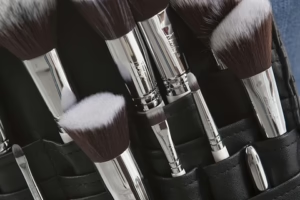
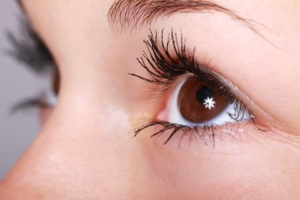
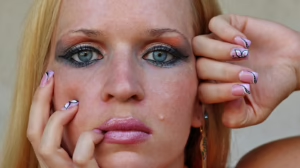
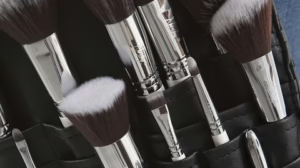
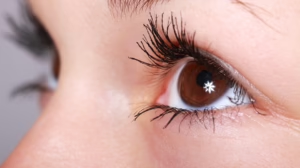




Add Comment